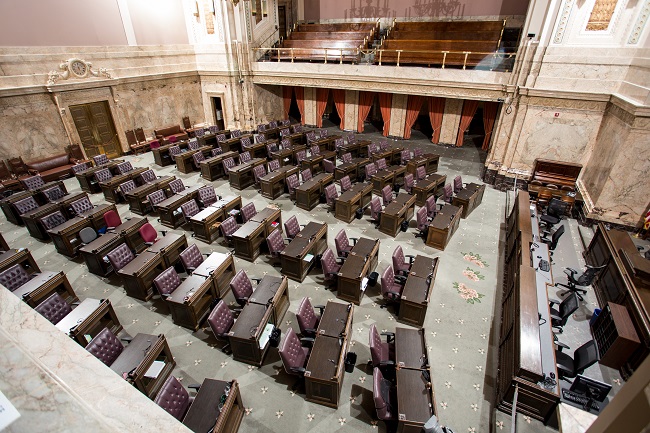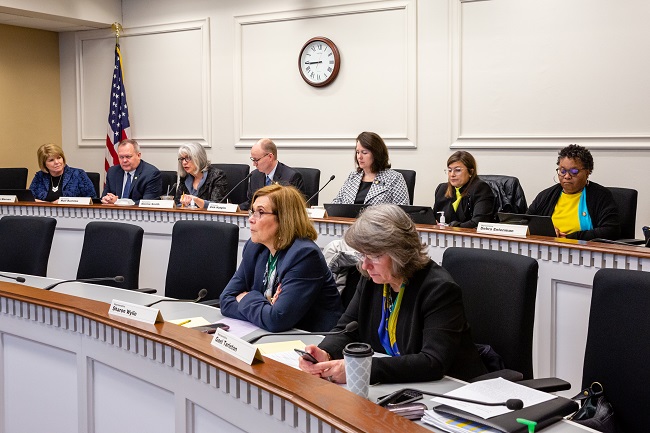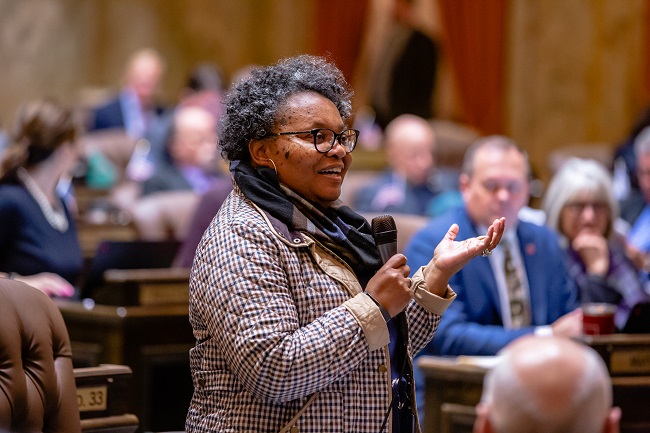Coronavirus Information
Washington State is experiencing an increase in cases of the coronavirus (COVID-19) and it is anticipated that the virus will continue to spread. There have been several deaths. My condolences to the families who have lost loved ones to this illness.
Health officials are working rapidly to identify and test people who may have been exposed. Public health officials in our state have experience responding to pandemics and are working with state and county health officials to share information, deploy resources, and respond at maximum capacity.
These are the recommendations from the Washington State Department of Health on how to respond in your daily life:
- Wash your hands often and avoid touching your face.
- Stay home when you’re sick.
- If you are sick and wondering what to do, call your healthcare provider or the Department of Health (1-800-525-0127) before you go to a clinic or emergency room.
- Get prepared in case for a COVID-19 outbreak in your community. We have resources at https://www.doh.wa.gov/Emergencies/Coronavirus#beprepared.
If you have questions, you can call the Washington State Department of Health at 1-800-525-0127 and press #.
You can also stay up to date by following them online at the various websites and social media channels below:
Website: https://www.doh.wa.gov/Emergencies/Coronavirus
Facebook: https://www.facebook.com/WADeptHealth
King Country Department of Public Health: www.kingcounty.gov/covid
What we are doing in the Legislature
In the Legislature, my colleagues Rep. Cody and Rep. Schmick, the health care leads in the House, have offered a bill to transfer $50 million to get state agencies and local governments the necessary funding to respond to COVID-19. As the situation develops, we are working with our colleagues in the Senate to guarantee that we adequately fund our state’s response. It also will give the Department of Social and Health Services funding to increase nursing staff to help address this growing need. We’ll continue to work with DOH, DSHS, and other state agencies to identify what the Legislature can do to ensure we have the necessary resources.
We are all in this together. Please make sure to follow the DOH recommendations to keep yourself healthy and keep up on latest information via the social media channels above.
The Legislative Cutoff Process
Each year, the Legislature sets itself a number of self-imposed deadlines. These deadlines (referred to as cutoffs around the Legislature) help keep the legislative session on track and make us as efficient with the time we have in Olympia as possible. As a part time legislature, the state Constitution mandates that we meet for 60 days in even numbered years. During this time, we want to consider as many bills as possible.
For a bill to become law it must first be heard and passed by a policy committee then a fiscal committee if it has any costs associated with it. Bills that are passed by both committees must then be passed by the full House. Once a bill has been passed by the full House, it starts the process all over again in the Senate. To make sure we are using our time wisely we have divided up the time we are in Olympia to focus on each step in the process. Bills that have not been passed by a certain “cutoff” date for each step in the process are considered dead for that year.
Yesterday was the cutoff for Senate bills to have passed a House fiscal committee. We will spend the rest of the on the House floor voting on Senate bills.
Facial Recognition Technology
Unfortunately, my bill to place a three-year moratorium on the use of facial recognition technology missed the cutoff in the House and will not be advancing this year. However, that does not mean that I have given up the fight to regulate and restrict the use of facial recognition technology. This technology still has huge implications on our right to live a private life and I will continue to work towards ensuring that we have sensible guardrails in place for its use.
Fortunately, my colleague, Senator Joe Nguyen passed Senate Bill 6280 which regulates the use of facial recognition technology by state and local governments, prohibits the use of facial recognition technology for ongoing surveillance, and creates a legislative task force to study the issue. Last Wednesday we heard the bill in the House Innovation, Technology, and Economic Development Committee. Working with my fellow committee members, we amended Sen. Nguyen’s bill to ensure that any government or law enforcement agency that wants to use facial recognition technology must receive approval from its local legislative body to study and implement the use of this technology. The committee also accepted my amendment to require a warrant for the use of facial recognition technology in any surveillance. If this amended bill is passed by the full House we will work with our colleagues in the Senate to make sure that going forward facial recognition technology is thoroughly vetted and that representatives of the people have several opportunities to weigh in before it is deployed.
Hair Discrimination
On February 12th, the House passed House Bill 2602, which banned discrimination based on hair styles. Black and African American people are often disproportionately accused of violating grooming policies for simply wearing their natural hair. To be viewed by peers as professional, black women often feel forced to undergo expensive, time-consuming hair treatments to alter their appearances. This is inequitable and unacceptable. You should not face discrimination because of how hair comes out of your head or how you choose to wear it. I am glad that we are working to prevent racial discrimination disguised as grooming policies.
HB 2602 is now being considered by the Senate. To watch my floor speech from February 12, please click here.



